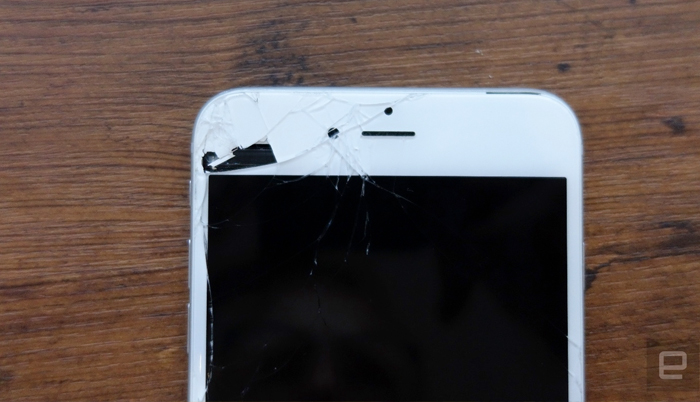![]() Home > Gadgets
Home > Gadgets
A new polymer could make phone screen repairs a thing of the past

Matt Smith/Engadget
![]() December 19th, 2017 | 10:58 AM |
December 19th, 2017 | 10:58 AM | ![]() 1260 views
1260 views
WORLD
If you've ever had to deal with a cracked smartphone screen, you know what a hassle it can be. Slapping a screen protector on it is only a stopgap until you have to have the screen replaced, which comes with a decent price tag. Now, researchers in Tokyo have discovered a new polymer that may actually heal itself, potentially leading the way to a future of self-healing phone screens.
The study was published in Science by a team of researchers led by Professor Takuzo Aida from the University of Tokyo. Titled "Mechanically robust, readily repairable polymers via tailored noncovalent cross-linking," the research promises a unique hard glass-like polymer called "polyether-thioureas" that can heal itself with only hand pressure. This makes it different than other materials that need high heat to heal up from a break.
"High mechanical robustness and healing ability tend to be mutually exclusive," said researchers. "In most cases, heating to high temperatures, on the order of 120 degrees Celsius or more, to reorganize their cross-linked networks is necessary for the fractured portions to repair."
According to The Guardian, the special glass polymer was discovered by mistake by a graduate student, Yu Yanagisawa, who thought the material would become a type of glue. He found that cut edges of the polymer would stick to each other, and formed a strong sheet after being compressed by hand at 21 degrees Celsius. This isn't the first time we've seen self-repairing phone tech, of course, with screen protectors that heal themselves and a Motorola patent for a self-repairing screen. However, new breakthroughs like this may help make broken screens and costly repairs a thing of the past.
Source:
courtesy of ENGADGET
by Rob LeFebvre
If you have any stories or news that you would like to share with the global online community, please feel free to share it with us by contacting us directly at [email protected]